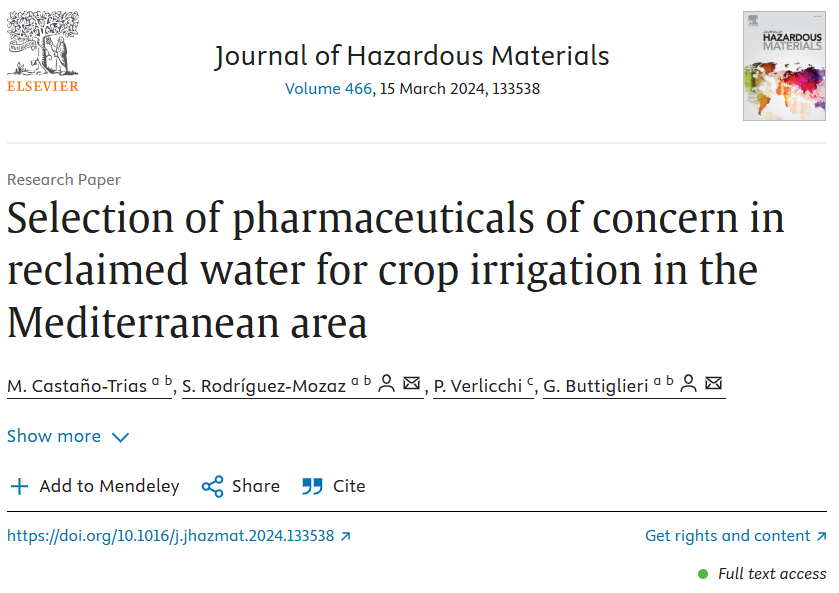
In the framework of the PrimaSAFE project, a recent study published in Journal of Hazardous Materials provides a comprehensive assessment of pharmaceutical compounds found in reclaimed water used for crop irrigation in the Mediterranean region. The research, conducted in Catalonia, Spain, aimed to identify those pharmaceuticals that pose the greatest risk to soil health, crop uptake, and human consumption.
Key Findings
- From an initial list of 148 pharmaceutical compounds, 47 were identified as priorities using a scoring system based on occurrence, persistence, bioaccumulation, and toxicity (OPBT).
- Of these, six compounds (e.g. iopromide, azithromycin, ibuprofen) posed potential risks to soil organisms due to high hazard quotients (HQ ≥ 1).
- Twenty-two compounds were predicted to be taken up by crops, particularly lettuce and tomato, based on chemical properties (e.g. LogD, pKa, molecular weight).
- Seven compounds, including diclofenac, carbamazepine, fluoxetine, and citalopram, were consistently found in edible plant parts across multiple studies.
- Importantly, no human health risk was identified from consuming the crops, as the detected concentrations were well below the established acceptable daily intake (ADI) for both adults and toddlers.
Implications
This work highlights the importance of region-specific assessments in water reuse practices. It demonstrates that, although certain pharmaceuticals can be taken up by crops, proper risk assessment and dilution strategies can ensure safe agricultural reuse of treated wastewater. The authors advocate for expanded monitoring and advanced wastewater treatments to reduce environmental exposure.
Reference
Castaño-Trias M., Rodríguez-Mozaz S., Verlicchi P., Buttiglieri G. (2024).
Selection of pharmaceuticals of concern in reclaimed water for crop irrigation in the Mediterranean area.
Journal of Hazardous Materials, 466, 133538.
DOI: 10.1016/j.jhazmat.2024.133538

